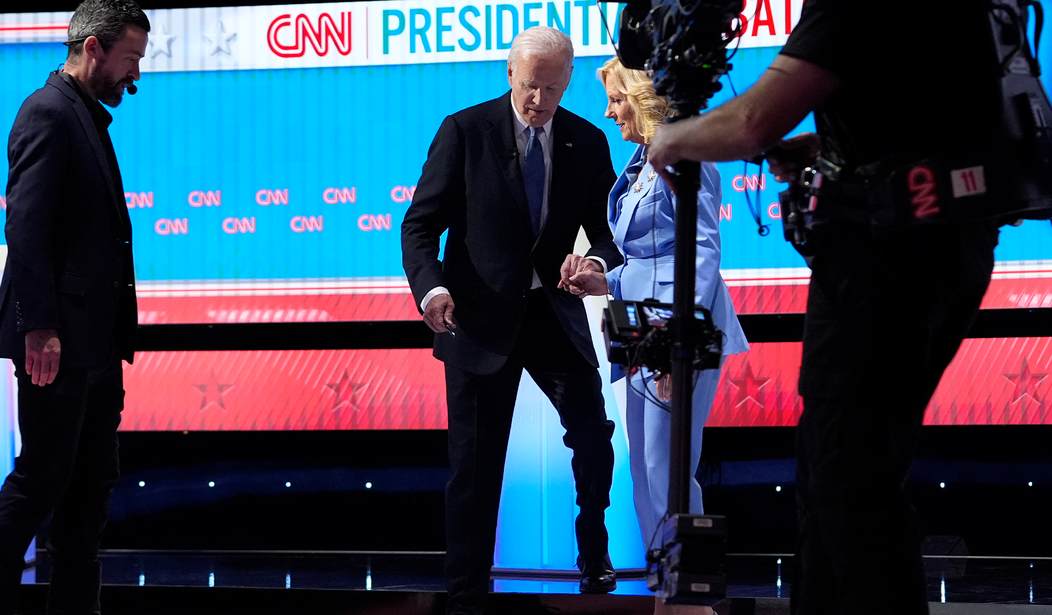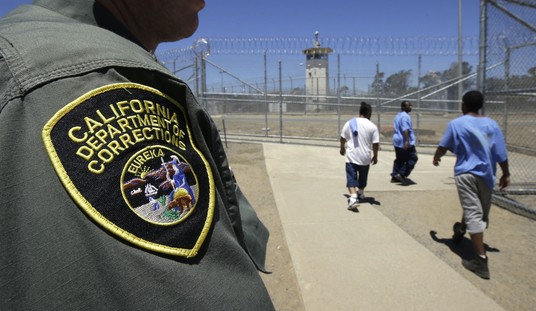In our weekly VIP Gold chat shows on Wednesdays (1:30 pm ET), my friend Cam Edwards often says, "Everything is stupid and it's only getting worse." Perhaps another way of saying this is that everything is broken, and everyone knows it -- but does nothing about it.
At the Free Press, Oliver Wiseman picks up on that same sense of frustration in the electorate, and asks whether the political poles have changed. Forget Republicans and Democrats, progressives and conservatives, or even the class-warfare arguments, all of which nibble at the edges of this political moment. Wiseman recalls Tablet editor-in-chief writing about "brokenism," and posits that the real divide is between those who see the wisdom of Cam's perspective and those who want to protect the ruins of institutions that they themselves have ruined:
In January 2021, Newhouse wrote an essay addressing what she would later describe as “the growing sense, made more glaring during the first year of the pandemic, that whole parts of America were breaking down before our eyes.” She argued that major institutions of American life—from the media to medicine—no longer worked. “Everything Is Broken,” was Newhouse’s unsparing conclusion—and the essay’s memorable headline.
Almost two years later, Newhouse wrote a follow-up, titled “Brokenism,” which translated the ideas of her first essay into a new political rubric. The most important divide in our politics, she argued, wasn’t between left and right, but between “brokenists” and “status-quoists.” Brokenists can be on the left or the right, or in the middle, but they agree that “what used to work is not working for enough people anymore.” Status-quoists, by contrast, “are invested in the established institutions of American life, even as they acknowledge that this or that problem around the margins should of course be tackled.” Bernie Sanders? Brokenist. Liz Cheney? Status-Quoist. Or—to pick further examples Newhouse doesn’t name in her piece—Joe Rogan? Brokenist. Matthew Yglesias? Status-quoist. (Presciently, Newhouse identified Marc Andreessen and Elon Musk as two tech world brokenists—two years before they would come out for Trump.)
Newhouse’s argument struck me as obviously true and important back in 2022. It explained how tech, Trump’s first term, Covid, wokeness, and so much else had combined to scramble our politics. After almost a month of Trump’s second term, “brokenism” looks like a more important idea than ever—the thread that connects so much of the revolution underway in Washington, D.C.
RFK and Tulsi Gabbard? Brokenist. Pete Hegseth? Brokenist. Elon Musk? Brokenist.
This paradigm does fit the moment pretty well, although one could argue that this has a more well-known name: populism. Populism is always a revolt against institutions perceived as corrupt or unresponsive, and its opposition is always oriented to defend the institutions. "Brokenism" may describe the specific mood more accurately, but Donald Trump and his "brokenists" are essentially populists -- Hegseth perhaps especially. Rather than appoint a SecDef from the general staff or the Senate, Trump picked a lower-ranking officer who served in the field and has oriented himself firmly against the status quo defended by the elites.
Populists don't champion those who promise to do nip-and-tuck fixes to the status quo. They pick people who plan to deconstruct the status quo and rebuild it to respond to popular will. That's precisely what Trump pledged to do as a candidate in 2016, and what he ferociously pledged to do in 2024 if he returned to the White House. Every single one of his Cabinet picks has oriented themselves to overhauls rather than adjustments to the status quo.
There is something else in play too. Last month, I read a column whose link I have since lost that put this same dynamic in different and somewhat more positive terms. The difference can also be seen as choosing creators or managers. If voters were satisfied with the status quo, they would choose someone to manage it. If they found the status quo unacceptable, they would choose someone to create a new status quo -- or perhaps in this case, a return to a previous status quo of secure borders, sanity on crime, and biological realities taking precedence over feelings.
Biden -- or whoever ran him -- was a manager over a status quo that no one liked, and a defender of institutions he and his allies looted and corrupted. Harris and her string-pullers were pinch-hitting managers of the status quo. Trump is a creator, this time backed by a team of creators, who had no allegiance to a corrupt status quo. If it hadn't been for his high personal unfavorability last year, Trump might have won 45 states.
Both imperfectly cover this moment on their own. Together, though, they explain the political environment we see, and also why Democrats still can't find their footing in it. They are so invested in the corrupt status quo -- literally, in the corrupt funding that DOGE is exposing and undoing -- that they cannot reorient themselves as either "brokenists" or creators. They have grown fat and lazy in the status quo of the last few decades, and everyone on their bench are managers of it rather than creators. And until they can find creators, Democrats will spend a very long time in the wilderness.








Join the conversation as a VIP Member